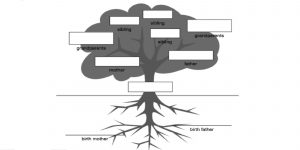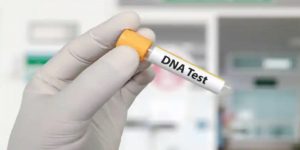Table of Contents
- 1 Reasons To Explore and Embrace Your Adoption History
- 2 How To Begin Genealogy Research Involving Adopted Child
- 3 What Are the Challenges Associated With Adoption Research?
- 4 Benefits Of DNA Testing in Adoptive Genealogy Research
- 5 Ethical And Emotional Considerations in Adoption History Research
- 6 Discover Your Adoption History With Confidence and Certainty!
If you’re curious about your adoption history, unraveling your past can provide invaluable insights into your identity and roots.
However, such an exploration goes beyond curiosity and research and has practical and emotional implications. So, whether you are the adoptee or helping an adoptee realize their genealogy, you need to know where to begin, the challenges to expect, and how to overcome them.
Most importantly, you will want to be sure that the resources and steps you follow will lead you to authentic and accurate findings about your biological roots.
Luckily, the skilled and empathetic team of genealogists at RecordClick has addressed every question you may have about tracking your genealogy.
RELATED:
How to Conduct Family History Research on A Budget
Reasons To Explore and Embrace Your Adoption History

Legal Adoption History
Discovering your roots is crucial for personal growth and identity. When you unravel your adoption history, you gain an in-depth understanding of your family’s cultural, ancestral, and medical heritage.
Besides connecting with your biological relatives, this journey of self-discovery can be a major step towards establishing a sense of completeness and validation. Such a transformation makes the reunions so heartwarming and the connection to the extended family so meaningful.
Most importantly, the practice has become so open in recent decades, mainly due to the rise of open adoption, which maintains a link between the adoptee and the birth parents. This is contrary to practices in the past, where information about birth parents was sealed.
Nonetheless, incorporating DNA testing in genealogy research can unravel even ancestry information sealed in the closed adoption setting.
How To Begin Genealogy Research Involving Adopted Child

Adoptive Family Tree
The best way to begin your research is to gather as much information as possible about the process and possible relatives.
Here are the steps that will set you on the path to discovery.
- Explore Documents: Start with gathering any information you may find, including the place and dates, as well as the names of parties and agencies involved.
- Ask questions: Engage family members in open and honest conversations. People close to you might have crucial information. Be sure to inquire respectfully and sensitively, as such topics may be emotional for some.
- Examine Legal Documents: Check for any court orders or decrees as they usually have clues such as involved agency, birth parents, or birth names that can aid your exploration.
- Seek Basic Information: If you have contacts with the involved agency, you can request non-identifying information about your birth parents. The information may offer hints about the parents’ physical characteristics, age, and general background without revealing names.
- Join Reunion Sites: These sites allow you to create a profile and search for possible biological connections.
How To Access Adoption Records
Accessing the records may look easy but it can be a challenge to get any substantial information due to varying laws and legal restrictions. However, you can still find a way out:
- Contact the Involved Agency: Check if the agency involved allows access to adoption records or facilitates contacts between the adoptee and the birth parents.
- Check Relevant Laws: You may be surprised that the jurisdiction has policies granting adoptees access to any information. Sometimes, navigating the legal aspect of such intricate research may require the intervention of a professional assistant.
- DNA Testing and Genetic Genealogy: DNA testing through reputable companies like 23andMe or AncestryDNA can provide crucial leads to your genetic relatives.
Although these are just the initial steps, they can lay the groundwork for your research journey.
RELATED
Is It Worth Doing The 23andMe Or Ancestry Test?
What Are the Challenges Associated With Adoption Research?

Adopted Child
The common challenges you’re likely to face include the lack of access to essential adoption records, mainly due to cases of closed adoption and legal restrictions.
Here is a more detailed look at each of these cases.
Closed Adoption
While open adoptions allow some level of contact and information-sharing between the adoptive and birth families, the closed option keeps it confidential and sealed.
As a result, the records become inaccessible as the birth parents seek to maintain anonymity and protect their privacy. In this case, accessing substantial information hinders your journey to self-discovery.
Legal Restrictions
Adoption laws at the state or country level can also limit or allow access to information for birth parents and adoptees. Restrictive laws protect information held in a closed adoption, such as birth records and names, hindering progress in the search for your genealogy.
Although some people have succeeded in unsealing the information through the court order, the process has been tedious, complex, and time-consuming.
Benefits Of DNA Testing in Adoptive Genealogy Research

DNA Test for Genealogy
Key benefits of DNA testing include overcoming the highlighted challenges, accessing scientific evidence, and establishing your ethnicity.
Here is a breakdown of the key benefits.
- Authentic Genetic Data: Through DNA results, it can be easy for a genealogist to identify genetic relatives, including siblings, relatives, and birth parents. You can compare the DNA profiles with a vast database and establish relatives with whom you can create meaningful connections.
- Breaking the Brick Wall: When faced with restrictive laws and closed adoption cases, DNA testing can provide a breakthrough in linking you with genetic relatives.
- Scientific Evidence: DNA testing can provide validation for traditional genealogy research. The tangible scientific evidence can supplement your findings and offer a connection to your ancestral roots.
- Ethnicity and Ancestral Origin: Besides connecting people with their genetic relatives, DNA results provide insights into your ethnic origin and possibly trace the exact region from which your ancestors lived or originated.
- Networking: DNA testing companies such as AncestryDNA, 23andMe, and MyHeritage DNA allow you to connect with people sharing your genetic matches, fostering mutual research assistance and support.
- Closure and Identity: By breaking the brick through DNA testing, an adoptee develops a sense of identity and closure as the information helps fill in missing puzzles in the history research.
Ethical And Emotional Considerations in Adoption History Research

Ethical And Legal Considerations
Adoption history research demands a delicate balance between pursuing information and respecting parties’ consent and privacy.
Here are essential considerations when pursuing adoption history.
- Informed Consent: A search angel must obtain informed consent from all the parties involved in the adoption records you seek to access. This means informing the individuals about the research process, objectives, and implications in case they’re willing to engage.
- Respecting Privacy: Being a sensitive personal matter, parties may choose the closed adoption route to protect their privacy. Therefore, search angels should handle any information respectfully and refrain from disclosing it without consent.
- Legal Compliance: The legal landscape varies significantly by period and jurisdiction. Therefore, genealogist researchers should be familiar with legal frameworks in respective jurisdictions to ensure the process is smooth and adheres to set regulations.
- Empathy and Sensitivity: Finding in this exploration can cause an identity crisis, grief, disappointment, and reopening of old wounds hence the need to be empathetic and emotionally supportive throughout the process.
RELATED:
Find a Genuine Genealogist for Accurate Ancestry
Discover Your Adoption History With Confidence and Certainty!
As you have seen, understanding your adoption roots empowers you to embrace your multifaceted identity and bridge the gap between your biological and adoptive family.
With the support of professional genealogists, you can overcome the challenges of adoption research with sensitivity and confidence.
Our experienced team at RecordClick is dedicated to guiding you through this process, offering empathy and expertise every step of the way.
Contact us today and let us be the trusted companion on your research journey.







